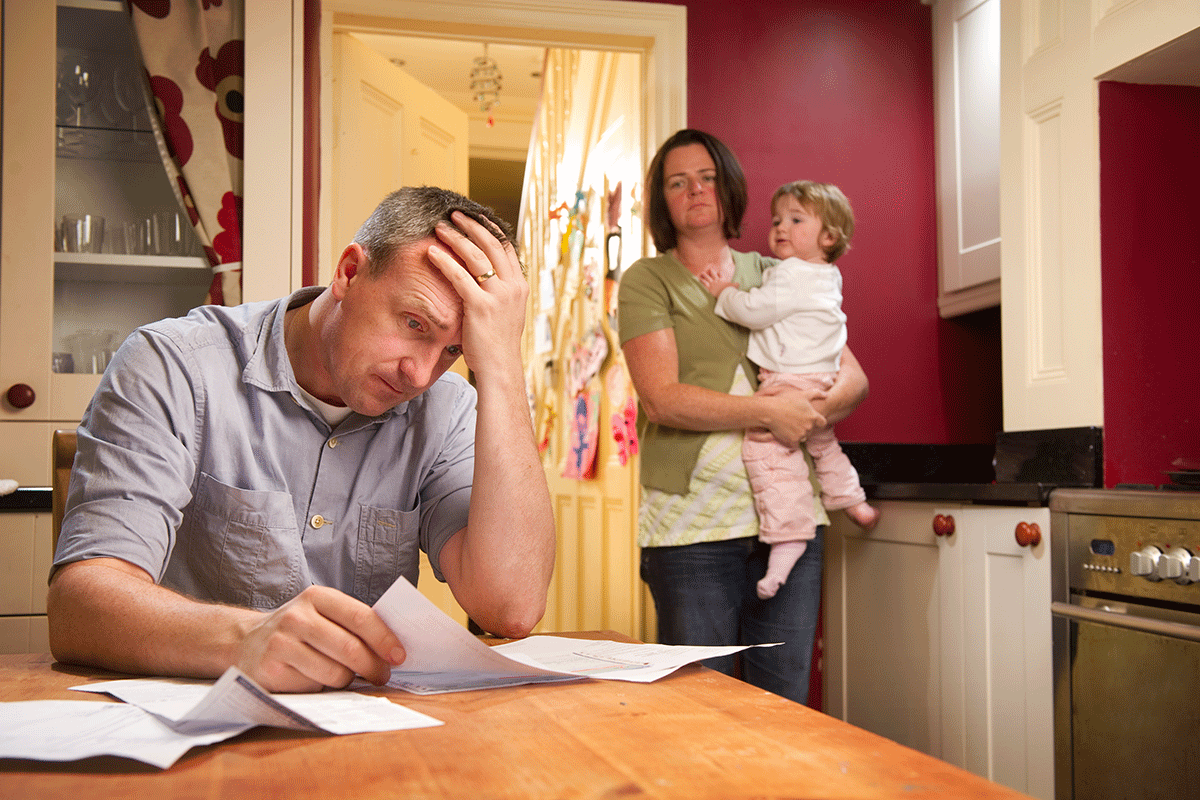Low-income households erode savings during coronavirus pandemic
Lower income households are twice as likely to have increased their debts during the pandemic
23rd June 2020 12:22
by Stephen Little from interactive investor
Lower income households are twice as likely to have increased their debts during the pandemic

Lower-income households are twice as likely to have borrowed or dipped into their savings than higher-income ones during the coronavirus pandemic, a new study shows.
The report by think tank the Resolution Foundation exposes the struggles of low-wealth households to weather the economic storm.
A typical worker in a shut-down sector of the economy has average savings of just £1,900, the report says.
This is far less than the average savings of £4,700 for someone who has been able to work from home during the crisis.
Many of the lowest earners work in areas of the economy that had to shut down due to the coronavirus crisis.
With less money to fall back on, lower-income households are far more likely to run down their savings and turn to high-interest credit.
The study also examined the second poorest fifth of households and found that one in six had increased their savings compared to one in three that are saving less than usual.
One in four of these households have increased their use of consumer credit – most commonly credit cards which carry high interest rates – during the crisis.
In contrast, just one in eight high-income households have increased their consumer credit. One in three of these household have seen their savings increase significantly as their spending has fallen.
George Bangham, economist at the Resolution Foundation, says: “Pre-coronavirus Britain was marked by soaring wealth and damaging wealth gaps between households. These wealth divides have been exposed by the crisis. While higher-income households have built up their savings, many lower-income households have run theirs down and had to turn to high-interest credit.
“The impact of coronavirus crisis will be with families for many years to come. That is why it is important for the Government to both strengthen the social security safety net via Universal Credit, and assist more low and middle-income households in building up their private safety nets by boosting their savings.”
The report also shows that the wealth gap between the richest and poorest tenth of households grew by more than £370,000 between 2006-08 and 2016-18 to reach £1.4 million.
Wealth gaps across the country have also grown, with London and the South East accounting for 38% of all wealth in 2016-18, up from 32% in 2006-08.
Mubin Haq, chief executive at the Standard Life Foundation, says: “Millions are now facing an income drop and in need of that buffer. Savings are not 'a nice to have', they are a 'must have'."
This article was originally published in our sister magazine Moneywise, which ceased publication in August 2020.
These articles are provided for information purposes only. Occasionally, an opinion about whether to buy or sell a specific investment may be provided by third parties. The content is not intended to be a personal recommendation to buy or sell any financial instrument or product, or to adopt any investment strategy as it is not provided based on an assessment of your investing knowledge and experience, your financial situation or your investment objectives. The value of your investments, and the income derived from them, may go down as well as up. You may not get back all the money that you invest. The investments referred to in this article may not be suitable for all investors, and if in doubt, an investor should seek advice from a qualified investment adviser.
Full performance can be found on the company or index summary page on the interactive investor website. Simply click on the company's or index name highlighted in the article.